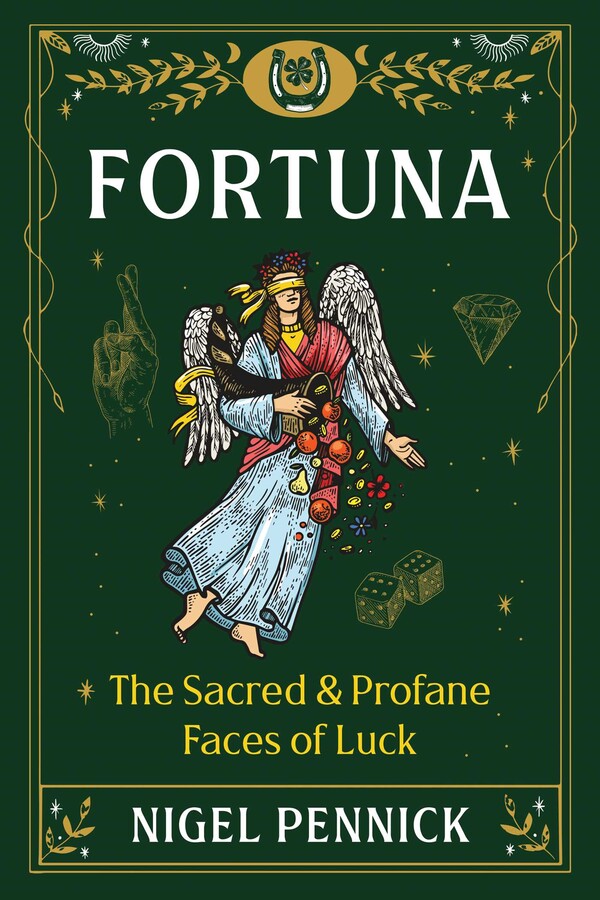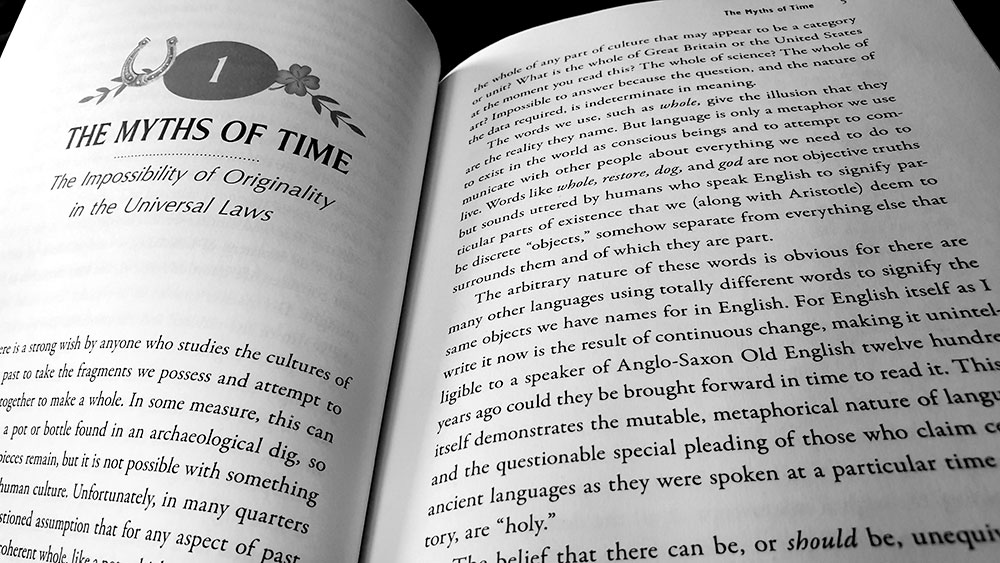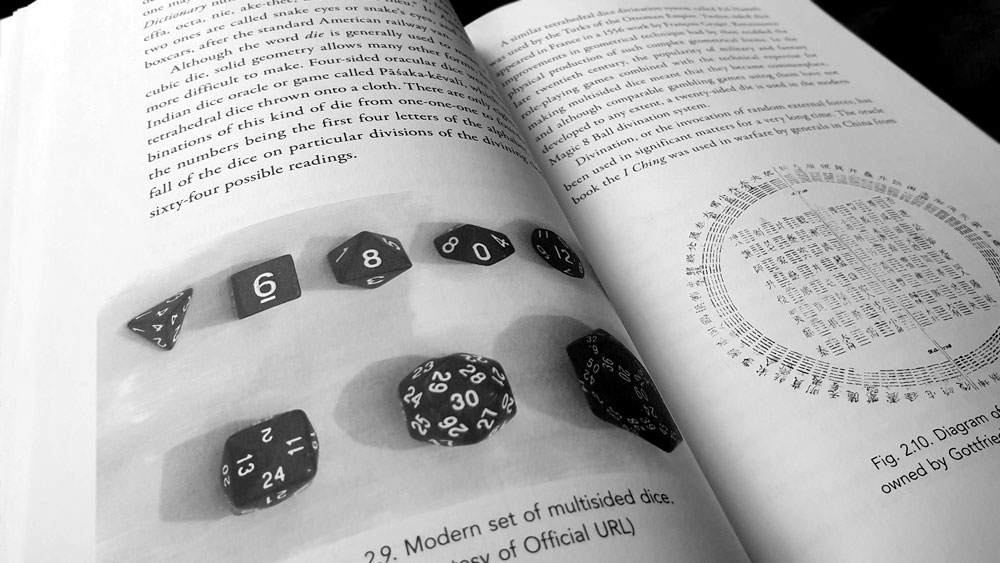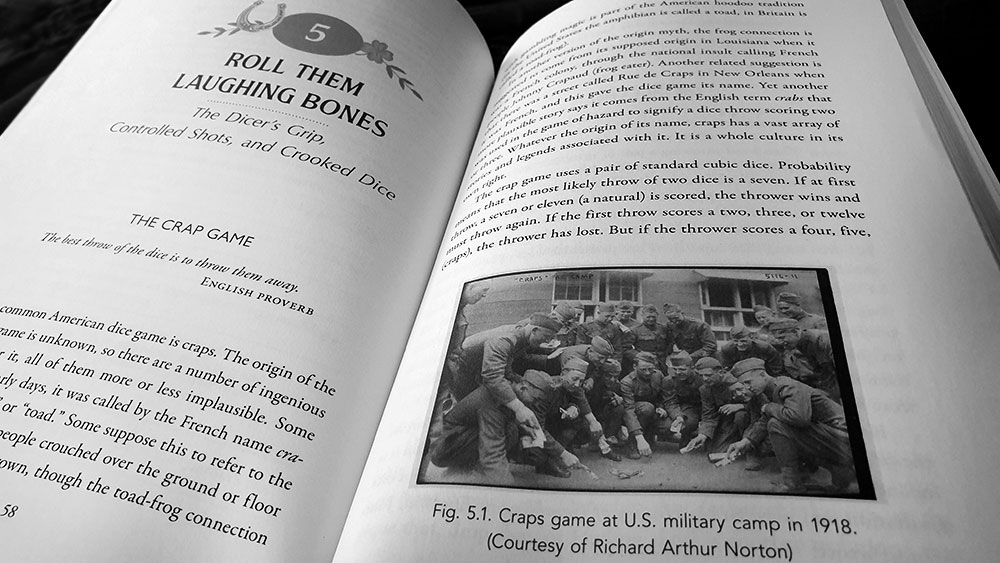 This is a brisk little read from Destiny Books’ ever-growing collection of titles by Nigel Pennick, clocking in at a total of 134 pages, which does include an index, references and appendices. The subject here is one which Pennick has some familiarity with, having considered various forms of divination throughout his written career. Rather than runes or other script-based based systems, though, this time the focus is on the core mechanics of randomness and chance that lies behind so many divinatory systems, but largely reduced to the pure mathematics of dice.
This is a brisk little read from Destiny Books’ ever-growing collection of titles by Nigel Pennick, clocking in at a total of 134 pages, which does include an index, references and appendices. The subject here is one which Pennick has some familiarity with, having considered various forms of divination throughout his written career. Rather than runes or other script-based based systems, though, this time the focus is on the core mechanics of randomness and chance that lies behind so many divinatory systems, but largely reduced to the pure mathematics of dice.
As a complete work, this is something of a strange beast, given its focussed and specific nature. In many ways, it feels like a section from another book that become unwieldy and was separated off to become its own thing. With its description of examples of gambling and dice from modern folklore, one could imagine this coming from one of Pennick’s other books where he plucks at thematic threads and goes off on little folkloric tangents with reckless abandon.
Pennick divides this brief work into equally brief chapters, ten in all, fair powering through his subject matter. The first is something of a theory dump, in regard to ideas of predestination and randomness, predominantly in conceptual terms accompanied by only a handful of references to historical examples. The second chapter is titled Lady Luck and the Goddess Fortuna, and despite the title of the book and the image of Dame Fortuna on the cover, this is really the only mention of her here, and it only runs to seven pages of body text. There’s a couple of page overview of Fortuna, but this is brief and limited to only the classical period, with no exploration of her later periods of greater prominence, the Middle Ages and Renaissance. Indeed the second half of this chapter ignores its title and abandons any discussion of Fortuna in order to discuss the historic use of dice.
And if you like dice and gambling, there’s plenty more of that here, with chapters on techniques for cheating when throwing dice, the history of wagered walks, and the pre-nineteenth century prohibitions on gambling and gaming. These are topics that might be of interest to some people, and presumably are to Pennick, but there’s no escaping the fact that, for this reviewer at least, it’s really boring, just devastating in its dullness. That these chapters feel longer than the other more interesting ones doesn’t help either, nor does their complete separation from the magical themes one might expect to find in here.
There are some valuable early chapters on geomantic divination and another on the late antique dice-based divination described in the Sortes Sanctorum text, with Pennick providing a full history of the system, including later examples of similar dice oracles. Things also refocus on matters mystical towards the end of the book with chapters on illegal gambling’s intersection with divination and magic, and on superstition in gambling, but as just discussed, these feel relatively brief and the connections tenuous. In the end, it feels like there was only so much that could be written about luck and dice systems of divination, so the rest of the word count had to be massaged with more general discussions about more mundane gambling.
Fortuna: The Sacred and Profane Faces of Luck ends with two appendices and an extensive nine page bibliography, and it certainly is a bibliography rather than a reference list, as very few of the titles are cited in the text. Only direct quotes receive in-body citing, with extended quotes getting a lot of mileage out of some titles, in particular John Ashton’s 1898 The History of Gambling in England.
Text design and layout comes from the capable hands of Virginia Scott Bowman, with type set in Garamond and Gill Sans, with the flared-serif Ribelano and a smattering of Optima as display faces. As is di rigueur for titles by Pennick, there’s a surfeit of illustrations dotted throughout the book, a combination of old etching or posters, as well as contemporary photographs of various apropos artefacts, varying in quality as is typical of this type of visual curation.
Published by Destiny Books



